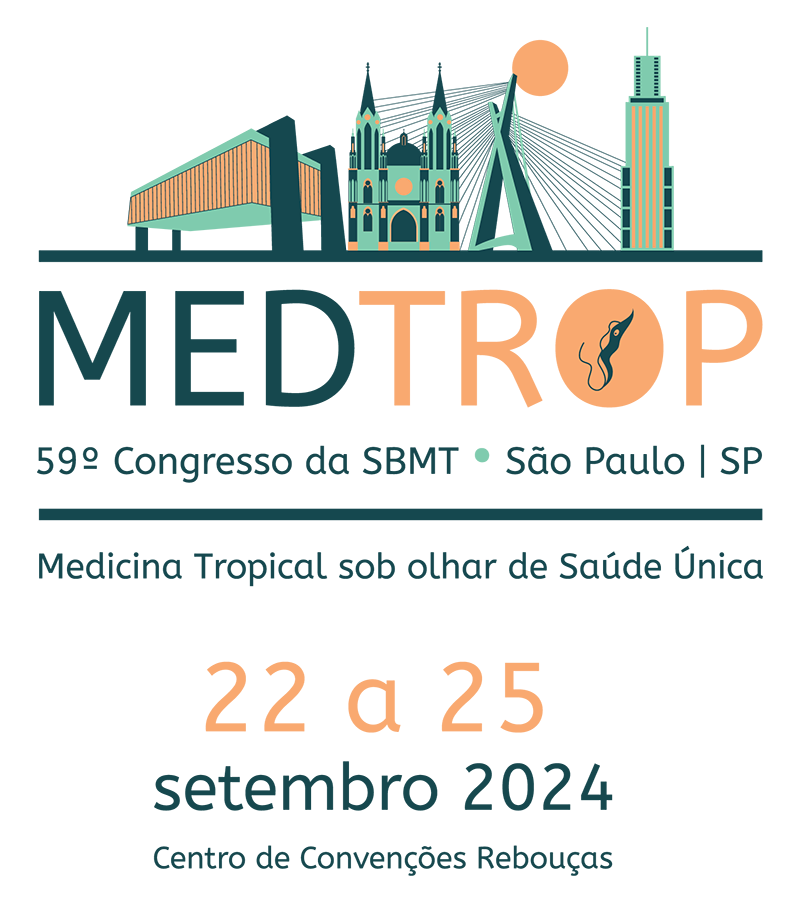Dados do Trabalho
Título
Atypical case of American cutaneous leishmaniasis due to Leishmania (V.) lainsoni without laboratory evidence of cellular and humoral immune responses in Belém metropolitan region, Pará, Brazil
Objetivos(s)
To present, for the first time, an atypical case of American cutaneous leishmaniasis due to Leishmania (Viannia) lainsoni without laboratory evidence of cellular (Montenegro skin test - MST) and humoral (IFAT-IgG) immune responses.
Relato do Caso
American cutaneous leishmaniasis (ACL) is regarded one of the most complex protozoan parasitic diseases due to the great heterogeneity of Leishmania parasites that can give rise to clinical manifestations of disease. In Amazonian Brazil, seven Leishmania species and one hybrid parasite act as etiological agents of ACL: six from L. (Viannia) subgenus, such as, L. (V.) braziliensis, L. (V.) guyanensis, L. (V.) shawi, L. (V.) lainsoni, L. (V.) naiffi and L. (V.) lindenbergi, a hybrid parasite, L. (V.) guyanensis/L. (V.) shawi, and only L. (L.) amazonensis of L. (Leishmania) subgenus. The case is desbribed above: Male patient, 72 years old, farmer, resident in a peri-urban area of Ananindeua city (Belém metropolitan region, Pará State, northern Brazil), surrounded by secondary residual forest, presenting four typical skin ulcerated lesions (3.0 cm diameter on average) on the left leg, evolving for four months. For ACL laboratory diagnosis, direct parasitological examination, isolation of the parasite in culture medium (Difco B45), Montenegro skin test (MST) and serological assay (IFAT-IgG), both with L. (V.) lainsoni axenic amastigote antigen, were used. Sequencing of RNA polymerase II and hsp70 gene target sequences were used to characterize the strain isolated from the patient. Both direct parasitological examination and culture isolation were positive for Leishmania sp; however, the MST and IFAT-IgG were negative. For this reason, a new serological assay with L. (L.) amazonensis axenic amastigote antigen was performed, but the negative result remained. Meanwhile, molecular characterization of the isolated parasite revealed that L. (V.) lainsoni was the etiological agent.
Conclusão
Leishmania (V.) lainsoni is one of the main etiological agents of ACL in the metropolitan region of Belém, Pará, northern Brazil, however, this is the first case of the disease caused by this species and evolving for four months in which it was not possible to demonstrate the presence of the cellular (MST) and humoral (RIFI-IgG) immune responses, although conventional antimony therapy has proven effective, evidencing that current knowledge on immunity against Leishmania infection still requires further studies.
Área
Eixo 06 | 2.Protozooses humanas e veterinárias - Leishmaniose
Prêmio Jovem Pesquisador
4.Não desejo concorrer
Autores
Fernando Tobias Silveira, Marliane Batista Campos, Luciana do Rêgo Lima Queiroz, Thiago Vasconcelos dos Santos, Patricia Karla Santos Ramos

 Português
Português English
English